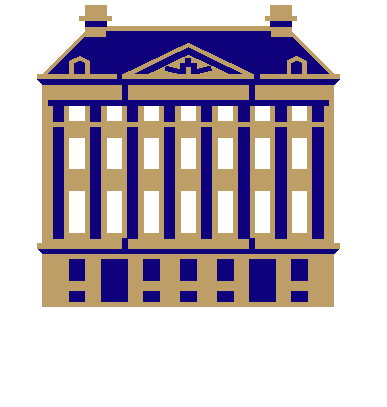SPARK
Scheduling and Planning Applications woRKshop (SPARK)
An ICAPS 2018 Workshop
Delft, The Netherlands
June 26, 2018
Organizing Chairs
- Sara Bernardini, Royal Holloway University of London, UK
- Simon Parkinson, University of Huddersfield, UK
- Kartik Talamadupula, IBM Research AI, USA
Proceedings
The proceedings are available as a pdf.
Venue: SPARK will be held in Commissiekamer 3.
Program
Schedule Notes:
- Paper presentations are 15+5: 15 minutes for the talk and questions, and 5 minutes for a commentary and discussion.
- Invited talks are 45+10: 45 minutes for the talk, and 10 minutes for questions and discussion.
|
Time |
Agenda |
|
0900-0915 |
SPARK 2018 Welcome |
|
0915-1010 |
Invited Talk 1: Derek Long |
|
1010-1030 |
Fares K. Alaboud and Andrew Coles. |
|
1030-1100 |
Coffee Break |
|
1100-1120 |
Elly Shao, Amos Byon, Christopher Davies, Evan Davis, Russell Knight, Garrett Lewellen, Michael Trowbridge and Steve Chien. |
|
1120-1140 |
Wayne Chi, Jagriti Agrawal and Steve Chien. |
|
1140-1200 |
Lei He, Mathijs de Weerdt, Neil Yorke-Smith, Xiaolu Liu and Yingwu Chen. |
|
1200-1220 |
Philippe Morignot and Christophe Guettier. |
|
1230-1330 |
Lunch |
|
1330-1425 |
Invited Talk 2: Joerg Hoffmann and Robert Künnemann Stackelberg Planning and its Applications in Security Analysis |
|
1425-1445 |
Sachin Grover, Tathagata Chakraborti and Subbarao Kambhampati. |
|
1445-1505 |
Michael Schaffner. |
|
1500-1530 |
Coffee Break |
|
1530-1550 |
Steven Edwards, Davaatseren Baatar, Andreas Ernst and Kate Smith-Miles. |
|
1550-1610 |
Tim Hammond. |
|
1610-1655 |
Panel & Community Discussion |
|
1655-1700 |
Workshop Close |
Guest Speakers
Jörg Hoffmann and Robert Künnemann, Saarland University, Saarbrücken, Germany
Stackelberg Planning and its Application in Security Analysis
Penetration testing (pentesting) is a wide-spread method in IT security, testing one's own defenses by conducting attacks. The idea in simulated pentesting is to automate this process, to the extent possible, by modeling the attack as a planning problem and have automated planners generate attacks by solving that problem. This approach is known in the AI Planning community at the scale of defending company networks against hacker attacks, first proposed by Boddy et al. at ICAPS 2005. In this talk, we present new results, broadening both the planning and application scope of the idea. On the planning side, we move from classical planning to what we have baptized Stackelberg planning, including a model of the defender in a 2-step game where the defender moves first (modifying the object to be defended), followed by the attacker (trying to compromise the modified object), where each "step" in this game is a full-scale classical planning process. This Stackelberg framework enables cost/benefit analyses on the part of the defender, determining the Pareto frontier of defensive-move cost vs. the gain in increased attack-cost. We show how this can be applied to objects beyond company networks, specifically to security of email infrastructure at internet-level, analysing the risk one country's infrastructure is exposed to given a hypothetical attack by another country. This can be useful for law makers and infrastructure providers alike, but also for protocol designers: there are various competing proposals for securing the email infrastructure, and the cost/risk assessment depends on how this infrastructure is set up at the moment. We discuss how to structure the required Stackelberg planning models for this purpose, how to acquire these models, and the analysis results obtained using these models. The approach is still recent and the jury is still out regarding its ultimate practical value, but the work has been published at a security conference (EuroS&P) and was well received there.
Bios: Jörg Hoffmann obtained a PhD from the University of Freiburg, Germany, with a thesis that won the ECCAI Dissertation award 2002 (the award for the best Europen dissertation in AI). After positions at Max Planck Institute for Computer Science (Saarbruecken, Germany), the University of Innsbruck (Austria), SAP Research (Karlsruhe, Germany), and INRIA (Nancy, France), he is now a Professor of CS at Saarland University, Saarbrücken, Germany. He has published more than 100 scientific papers, has been Program Co-Chair of the AAAI'12 Conference on AI, and has received 4 Best Paper Awards from the ICAPS, as well as the IJCAI-JAIR Best Paper Prize 2005. His core research area is AI automated planning, but he has performed research also in related areas including, in particular, model-based security testing.
Robert Künnemann obtained his Ph.D. from École normale supérieure de Cachan. He worked with the SECSI and PROSECCO teams at INRIA and held positions at Technical University Darmstadt and Saarland University. He is now Postdoc at the information security and cryptography lab at CISPA, and is concerned with protocol verification and accountability.
-
Derek Long, King's College London and Schlumberger, UK
Planning a Way Into a Deep Hole
In this talk, I will describe experiences in introducing planning into an industrial context and using it for real activities. I will describe the context and share some of the details of the process of developing modelling skills amongst a community of users.
Bio: Professor Derek Long is a professor at King’s College London and Scientific Advisor at Schlumberger. He has researched in planning for more than 20 years, having worked as an academic at UCL, Durham University and the University of Strathclyde before joining King’s. Together with Professor Maria Fox, he defined the basis for many of the modern developments in temporal and metric planning and has developed planning systems that demonstrate significant capabilities in tackling these challenges. Professor Long has championed the use of generic planning systems to confront real applications, extending the range and reach of planning technology in response to the problems these application areas raise. In recent work, he has developed new ways to extend the capabilities of planners in treating complex hybrid system dynamics.
Workshop Aim
Application domains that contain planning and scheduling (P&S) problems present a set of interesting challenges to the AI planning and scheduling community - from modeling to technical to institutional issues. New real-world domains and problems are becoming increasingly affordable for AI and P&S techniques. The international Scheduling and Planning Applications woRKshop (SPARK) series was established to foster the practical application of advances made in the AI P&S community.
The workshop aims to provide a stable forum on relevant topics connected to application-focused research and the deployment of P&S systems. The immediate legacy began in 2007 with the ICAPS'07 Workshop on `Moving Planning and Scheduling Systems into the Real World’, and continued in 2008-2016 with successful yearly editions.
The websites of the previous editions of the workshop series are available at http://decsai.ugr.es/~lcv/SPARK/. These workshops presented a stimulating environment where researchers could discuss the opportunity and challenges in moving P&S developments into practice, and analyze domains and problem instances under study for, or closely inspired by, real industrial/commercial deployment of P&S techniques.
This is the 11th edition of SPARK. The previous editions saw substantial attendance with respect to other collocated events (about 30+ people every year since 2007). This success, together with the recent creation of the Novel Applications track at ICAPS make SPARK:
- The ideal incubator to test, discuss, mature and improve potential papers for that main track with the feedback of an excellent audience
- A great place for the inception of new applications and challenges
The challenges and discussions that emerged in the last years' editions set the baseline for this year's SPARK workshop. A goal of the workshop series is the definition of a longer term set of challenges that could be of benefit for the research community as well as practitioners.
Authors of accepted papers will be encouraged to share their domains and instances, or parts of them, towards a library of practical benchmarking problems that could also be useful for the community.
Format
The workshop will retain the successful format of previous SPARK editions. Each session will have presentation from the accepted papers and invited speakers.
Topics
Starting from the results of the previous editions, SPARK'18 will deepen the debate on application-relevant aspects of P&S theory and practice, with the aim of reporting and discussing experiences relating to deploying P&S systems.
Topics of the workshop include, but are not limited to:
- Novel domains and benchmark or challenge problems
- Experiences in deploying P&S systems, from their conception to their maturity in practice
- Comparison with previously existing technologies and/or systems
- Integration of operational knowledge from existing legacy components
- Integration of multiple sources of knowledge and reasoning schemes (actions, time, resources)
- Modelling and domain model acquisition
- Handling dynamic and uncertain sources of knowledge
- Algorithmic and technological issues
- Plan execution and replanning
- Mixed initiative approaches
- User interface design, visualization and explanation
- Machine learning methodologies applied to P&S systems
- Engineering, deployment, and maintenance
- Evaluation, testing, and validation
- Assessment of impact on end users
Submission Information
Submissions may be regular papers (up to 8 pages plus references) or short position papers (up to 2 pages, including references). All papers should conform to the AAAI formatting guidelines and style. Submissions will be reviewed by at least three referees. The top 2 papers based on the reviews will be selected for a fast-track submission to the next ICAPS conference. Please note that the submissions to SPARK 2018 must be anonymous in order to be considered for the fast-track submission.
Submissions, in PDF format, must be submitted via the EasyChair site: https://easychair.org/conferences/?conf=spark2018
Important Dates
- Paper submission: Extended to April 6, 2018
- Notification of acceptance/rejection: May 2, 2018
- Camera-ready paper submissions: May 25, 2018
- Workshop date: June 26, 2018 (Tuesday)
Program Committee
- Gabriella Cortellessa, CNR-ISTC, National Research Council of Italy
- Simon Parkinson, University of Huddersfield
- Christophe Guettier, SAFRAN
- Neil Yorke-Smith, Delft University of Technology
- Riccardo Rasconi, ISTC-CNR
- Lukas Chrpa, Czech Technical University in Prague
- Mark Boddy, Adventium Labs
- Angelo Oddi, ISTC-CNR, Italian National Research Council
- Minh Do, NASA
- Laura Barbulescu, Carnegie Mellon University
- Tiago Stegun Vaquero, NASA Jet Propulsion Laboratory - Caltech
- Terry Zimmerman, University of Washington - Bothell
- Mark Giuliano, Space Telescope Science Institute
- Simone Fratini, European Space Agency - ESA/ESOC
- Anthony Barrett, NASA
- Cédric Pralet, ONERA Toulouse
- Nicola Policella, ESA/ESOC
- Patrik Haslum, ANU
- Mauro Vallati, University of Huddersfield
- Bram Ridder, King's College London












